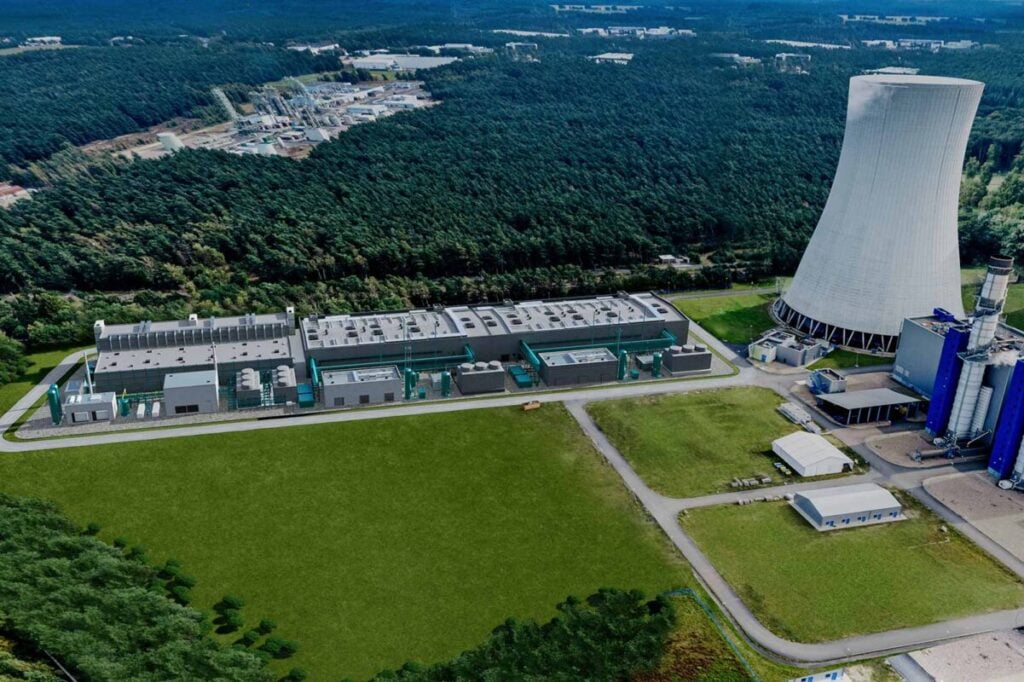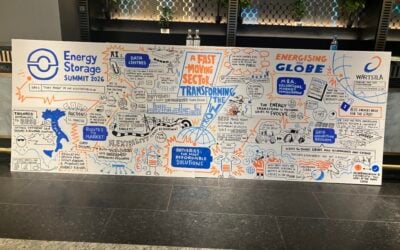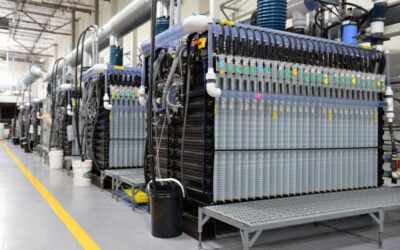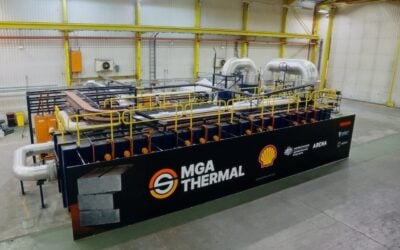
The German government has opened a public consultation on new frameworks to procure energy resources, including long-duration energy storage (LDES).
Under the proposed Kraftwerkssicherheitsgesetz, loosely translated as the Power Plant Safety Act, the Ministry for the Economy and Climate Change (BMWK) would seek resources, including 12.5GW of new power plants and 500MW of LDES.
The consultation was opened for six weeks from the 11 September announcement and follows the European Commission approving the plan’s rollout and the German Federal government coming to an agreement in early July.
The strategy will see procurements of a combination of so-called ‘hydrogen-ready’ gas power plants, a handful of power plants running on hydrogen from their start of operation, as well as a fleet of gas plants and the LDES technologies. BMWK’s tender plan documents can be found here (PDF, in German).
Try Premium for just $1
- Full premium access for the first month at only $1
- Converts to an annual rate after 30 days unless cancelled
- Cancel anytime during the trial period
Premium Benefits
- Expert industry analysis and interviews
- Digital access to PV Tech Power journal
- Exclusive event discounts
Or get the full Premium subscription right away
Or continue reading this article for free
The 500MW LDES procurement will take place as part of a first tranche, alongside 5GW of hydrogen-ready power plants, 2GW of modernisations to make existing plants run on hydrogen, and 500MW of pure hydrogen plants.
For the second and final tranche, the government will competitively tender a further 5GW of capacity from gas-fired power plants.
BMWK noted that this set of procurements comes ahead of the introduction of Germany’s new capacity market mechanism, planned to start in 2028.
The LDES tenders had originally been anticipated to be held late this year and in 2025, but it is understood the timeframe has moved back a year.
BDEW, Germany’s biggest trade association for the energy and water industries, welcomed the opening of the consultation and the drawing up of the draft law by BMWK.
“We must make rapid progress here so that the tendering process and thus the concrete realisation of H2-ready and H2-sprinter power plants and long-term storage facilities can finally begin,” BDEW executive board chair Kerstin Andreae said.
Companies need “a reliable investment framework,” Andreae said, adding that the planned integration of the Power Plant Safety Law with the new capacity market mechanism from 2028, “is an absolutely necessary building block for investment security.”
72-hour duration requirement
Lars Stephan, policy and markets director at Fluence noted in a LinkedIn post last week that BMWK is planning to require LDES technologies to provide up to 72-hour discharge duration with a minimum 1MW power rating.
The storage systems’ import capacity must be at least 50% of export capacity, and must run for at least one full cycle a year.
The government said it is looking for resources to plug gaps in variable solar PV and wind energy generation, including the infamous ‘dunkelflaute’ periods when low sunlight and low wind could persist over days at a time.
As mentioned by Lars Stephan’s post, the German government’s definition of ‘long-duration’ goes way further than the more typical 8-hour duration commonly associated with the term. The 8-hour discharge threshold has been adopted by governments in the UK, Italy, Ireland and California as each has also moved to begin their first procurements for LDES.
Developers will receive a government contribution to Capex costs, paid across 10 annual installations, with bids awarded on a lowest cost of storage per MW/MWh basis, Stephan said.
The energy storage system integrator’s European policy and markets director added that the door could be open for much more LDES in the proposed second tranche of Power Plant Safety Act procurements.
While the 5GW was originally earmarked to be awarded to gas plants, BMWK has been directed to include a technology-neutral approach. The current draft law design requires 96 consecutive hours of energy at a minimum power rating of 10MW.
Additionally, “the plants have to provide a bunch of advanced applications, including during zero active power, hence gas plants need a phase-shifter mode, batteries grid-forming inverters,” Stephan wrote.
Lars Stephan and Julian Jansen, Fluence’s EMEA growth and market development director, co-authored an article on European electricity market design and why it must value the flexibility energy storage can bring to the grid. The full article has been included in the latest edition of PV Tech Power (Vol.40), available to ESN Premium subscribers.





